Peking University alumni join, creating an exceptionally luxurious entrepreneurial lineup
The news is official: Mira Murati, former CTO of OpenAI, has announced the establishment of her startup.
The team behind the new company, Thinking Machines Lab, is quite impressive, with most members coming from the old OpenAI team, including but not limited to the previously announced Barret Zoph (CTO) and John Schulman (Chief Scientist).
Our old acquaintance Lilian Weng also appears in the official lineup. She graduated from Peking University and joined OpenAI in 2017 as a research scientist, contributing to the pre-training, reinforcement learning, alignment, and model safety of GPT-4.
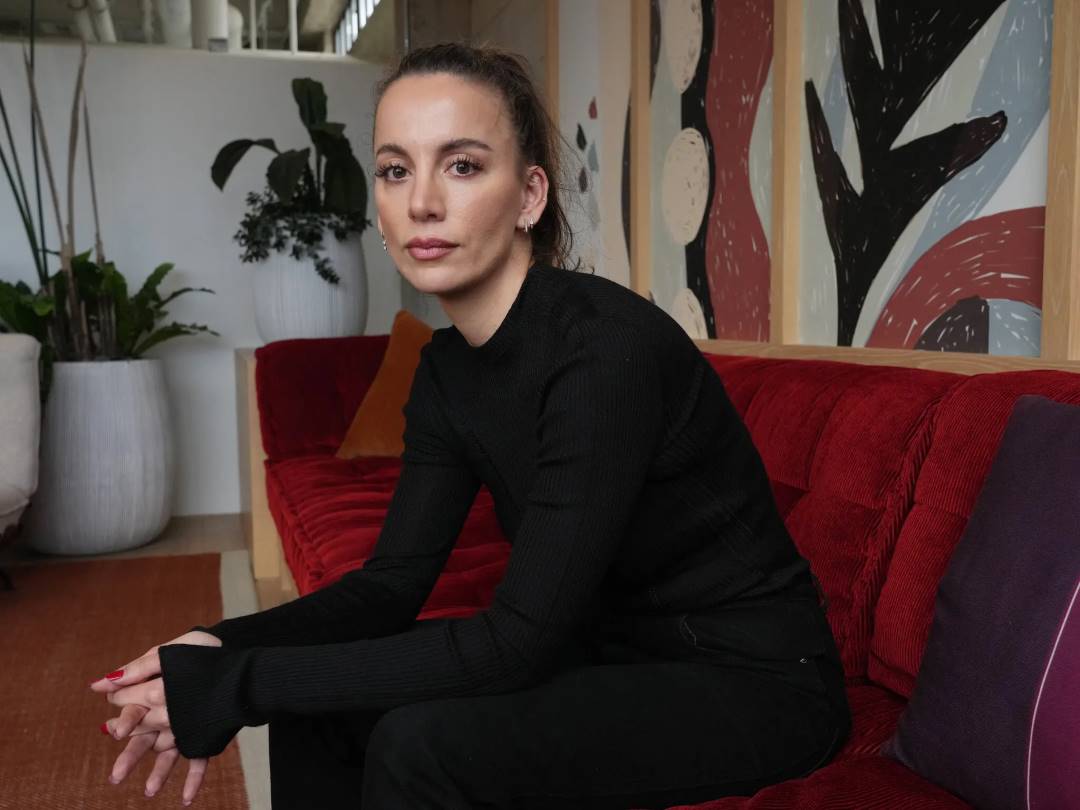
Investment is not just about products; it's about people.
Earlier reports indicated that despite not having released any products, Mira's new company is expected to raise over $100 million in initial funding based on its reputation.
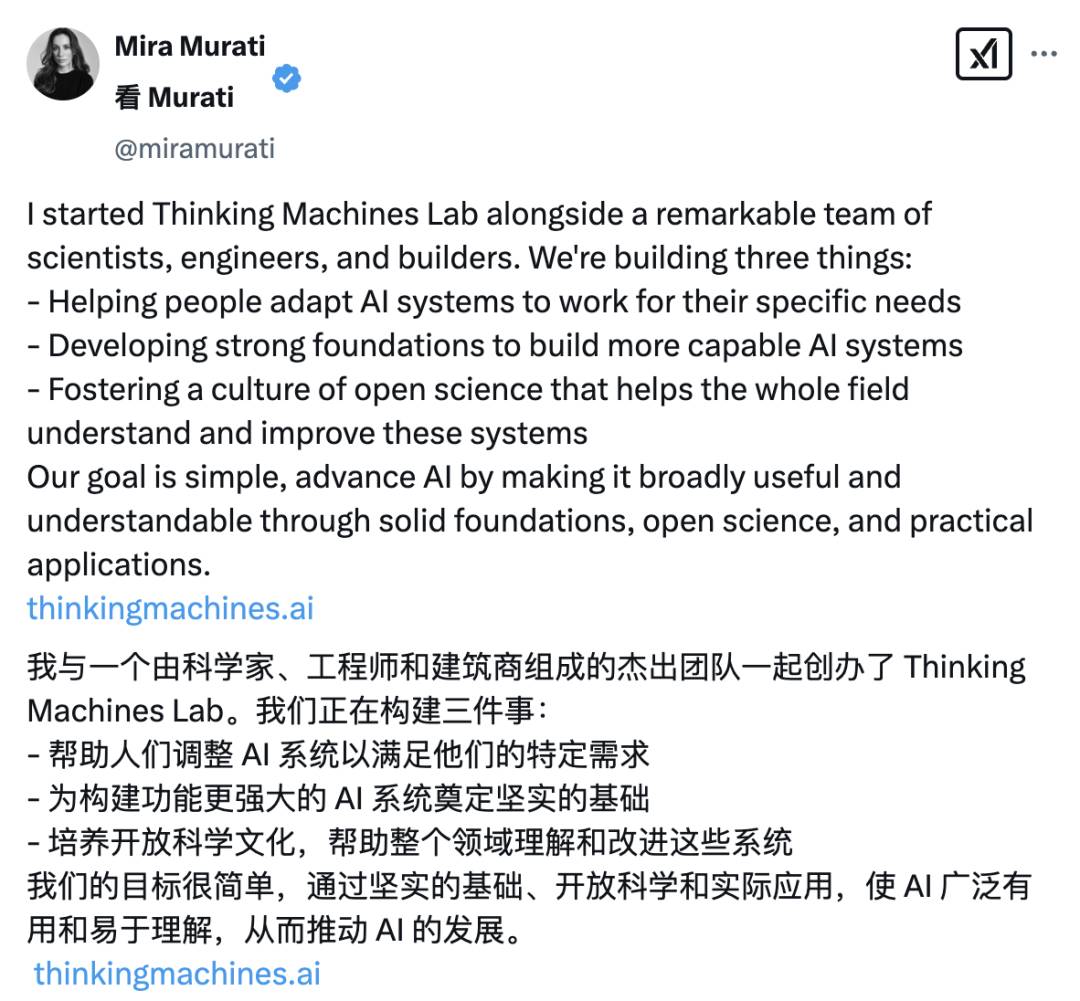
In the early hours of today, Mira also posted on the X platform explaining the founding purpose of the new company:
"I founded Thinking Machines Lab with a team of outstanding scientists, engineers, and builders. We are doing three things: helping people tailor AI systems to their specific needs, building a strong foundation for developing more powerful AI systems, and fostering a culture of open science to help the entire field understand and improve these systems.
Our goal is simple: to make AI widely usable and easier to understand through solid foundations, open science, and practical applications, thereby advancing the development of AI."
For this team of 29 renowned AI professionals, the official website describes them as follows:
"We are scientists, engineers, and builders who have created some of the most widely used AI products, including ChatGPT and Character.ai, open-source weight models like Mistral, and popular open-source projects such as PyTorch, OpenAI Gym, Fairseq, and Segment Anything."
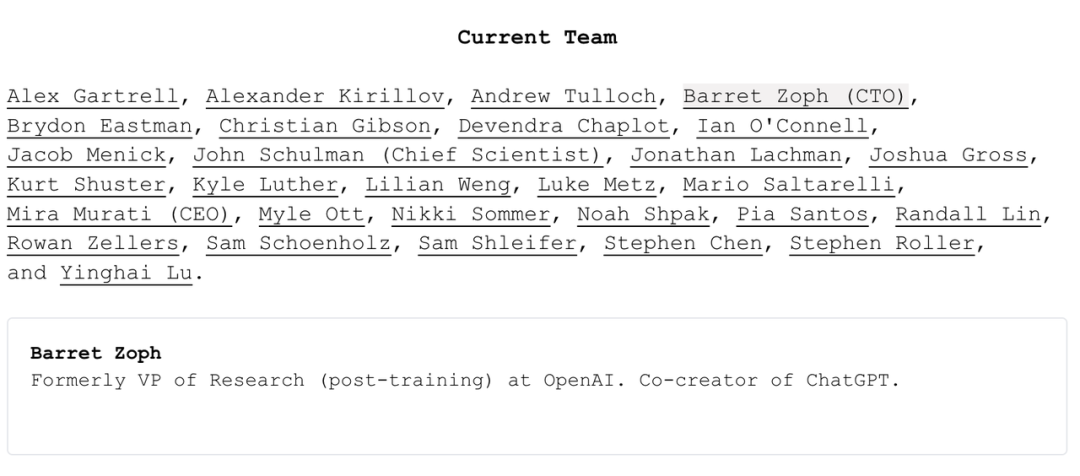
So, will Thinking Machines Lab be another OpenAI?
According to the official blog, Thinking Machines Lab is an AI research and product company aimed at building a future where everyone can access knowledge and tools to apply AI to their unique needs and goals.
While AI technology has made significant breakthroughs, the scientific community's understanding of its cutting-edge systems remains limited, with relevant knowledge primarily held by top research labs, affecting public perception and use of AI.
At the same time, existing AI systems still have shortcomings in personalization.
To address these issues, this group of scientists and engineers, who have participated in the development of well-known AI products like ChatGPT and Character.ai, as well as open-source projects like PyTorch, established Thinking Machines Lab to enhance the understandability, customizability, and universality of AI.
Thinking Machines Lab believes that scientific development requires open sharing and plans to collaborate with the research community by publishing technical blogs, papers, and code. These ideas collectively point to one goal: to create more practical, smarter, and more human-centered AI systems.
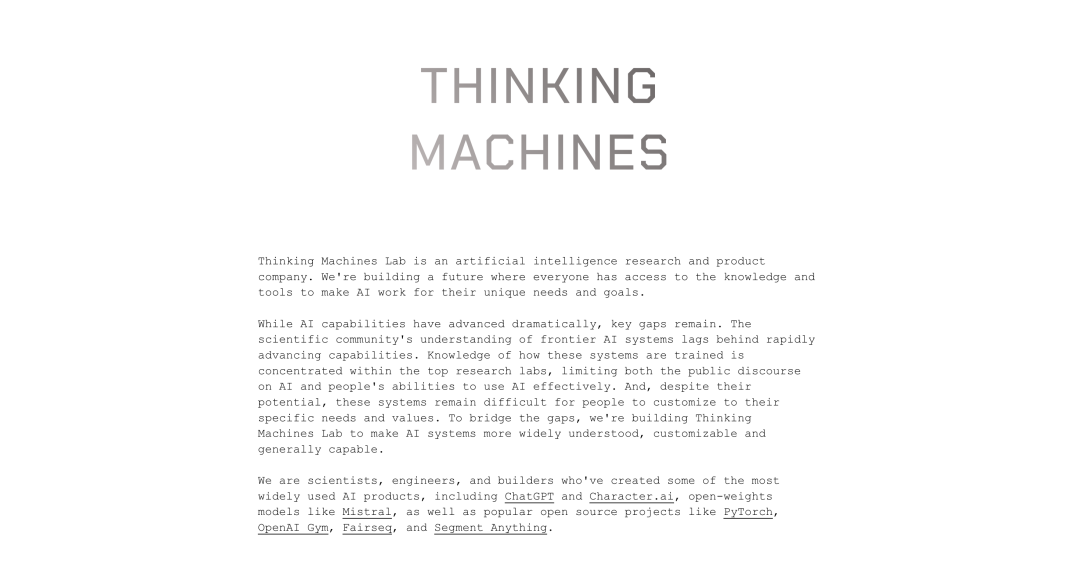
Regarding operational philosophy and safety strategies, the blog mentions that product deployment can promote technological iteration while helping the team focus on solving the most impactful problems.
Thinking Machines Lab will contribute to AI safety in the following ways:
- Maintain high safety standards—preventing the misuse of released models while maximizing user freedom.
- Share best practices and methods for building safe AI systems with the industry.
- Accelerate external research on alignment issues by sharing code, datasets, and model specifications. It is believed that methods developed for existing systems, such as effective red team testing and post-deployment monitoring, will provide valuable insights for future, more powerful systems.
Additionally, the naming of Mira's new company (Thinking Machines Lab) has significant historical roots.
According to reports from foreign media, over thirty years ago, American inventor Danny Hillis envisioned collaboration between humans and machines.
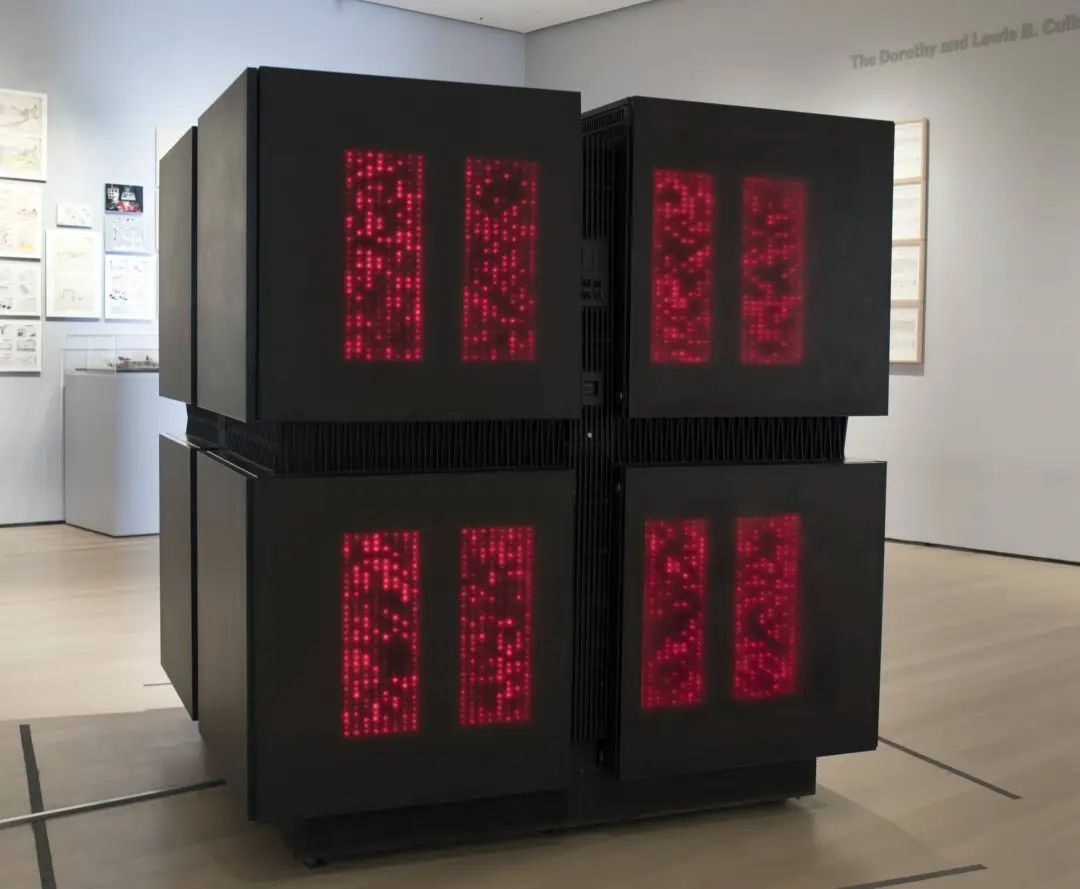
As a student of AI pioneer Marvin Minsky, Hillis built a supercomputer with powerful parallel processing chips, which can be seen as a precursor to today's AI computing clusters. Hillis established the new company Thinking Machines based on this computer.
However, this computer was ahead of its time and ultimately declared bankruptcy in 1994.
Now, this historically significant name is reborn in a new form, and Mira will take up this historical banner to create the next Thinking Machines.
免责声明:本文章仅代表作者个人观点,不代表本平台的立场和观点。本文章仅供信息分享,不构成对任何人的任何投资建议。用户与作者之间的任何争议,与本平台无关。如网页中刊载的文章或图片涉及侵权,请提供相关的权利证明和身份证明发送邮件到support@aicoin.com,本平台相关工作人员将会进行核查。



